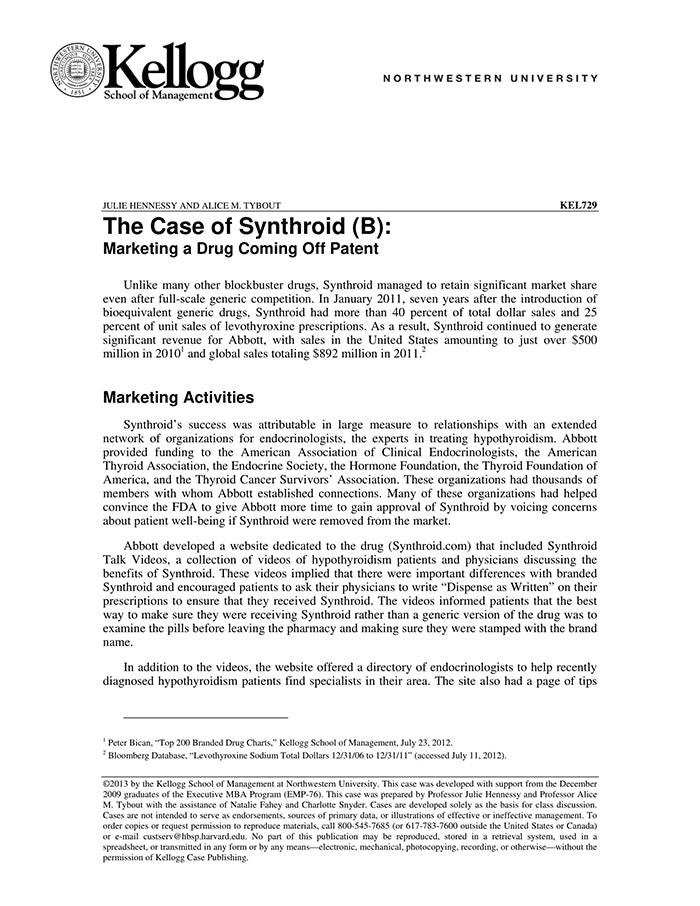The Case of Synthroid (B)
受取状況を読み込めませんでした
The case tells the story of Synthroid from its development in 1958 as the first synthetic thyroxine molecule to its competition against generic equivalents in 2004. The case introduces students to the pharmaceutical industry, its practices, and some of the complexities of pricing and drug choice, with drug manufacturers, insurance companies, physicians, pharmacists, and patients all playing a role. It also provides a primer on hypothyroidism, its symptoms, and its treatment. Because Synthroid was developed and introduced before FDA regulations and drug standards of identity were fully established, it was difficult for competitors to get their drugs certified as identical to Synthroid. Through a series of efforts with physicians, especially endocrinologists, Synthroid's owners were able to maintain the perception for forty-six years that Synthroid was uniquely effective. In 2004, however, the FDA declared several competitive products to be bioequivalent to Synthroid, which posed a significant challenge to its owner, Abbott Laboratories. Students are challenged to consider options to maintain the drug's unit volume, revenue, and/or profit in these difficult circumstances. The case is written in two parts. The (A) case provides background on the history of the drug, the pharmaceutical industry and its marketing practices, and hypothyroidism and its treatment, and it concludes in 2004 as Abbott's marketers face the impending challenge of defending the Synthroid business against generic competition. The (B) case describes what Abbott actually did to maintain its share in the United States and outlines its strategy in India, a market without patent protection for pharmaceuticals.
【書誌情報】
ページ数:8ページ
サイズ:A4
商品番号:HBSP-KEL729
発行日:2013/2/19
登録日:2013/8/8

